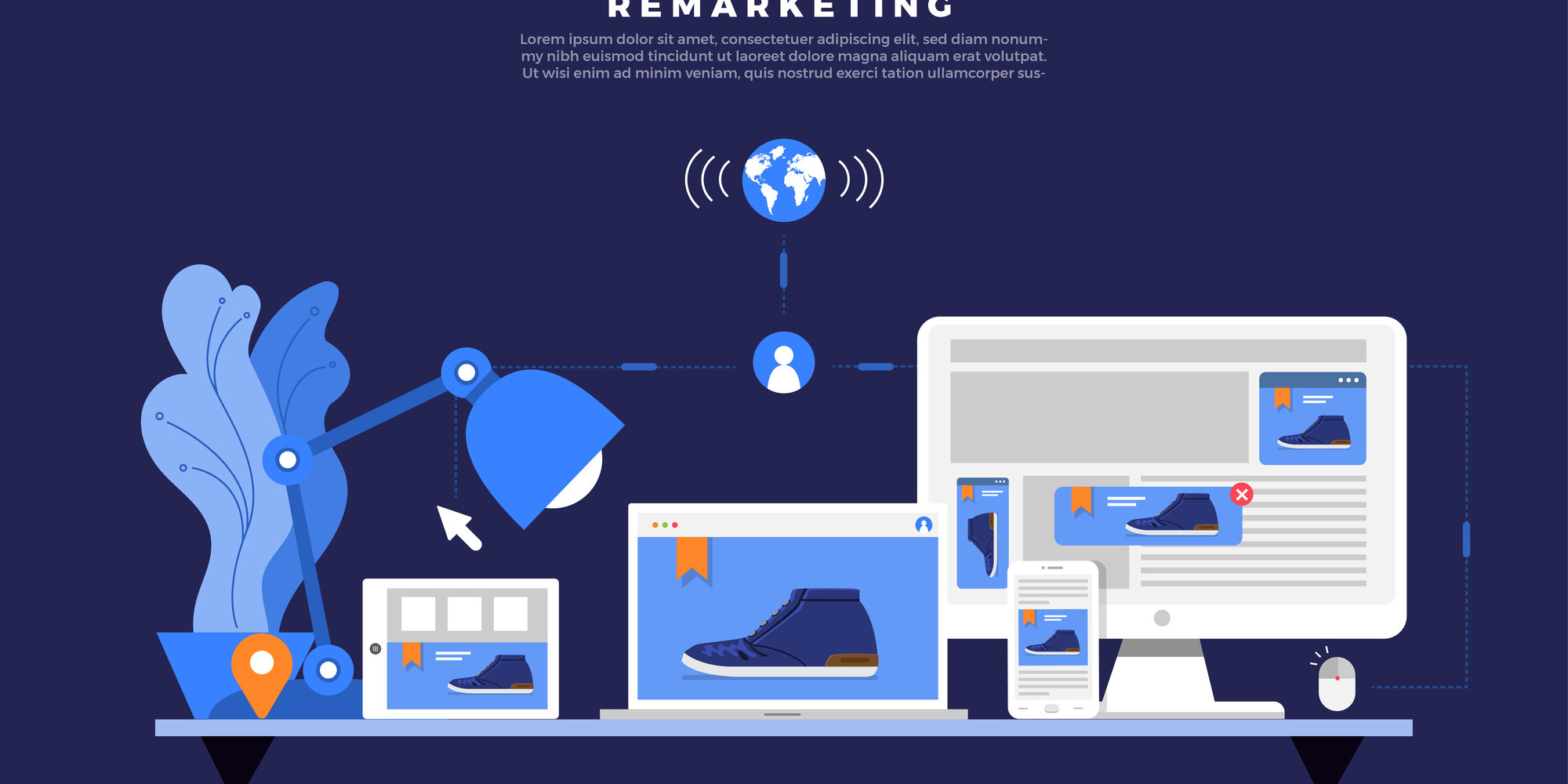Remarketing is a form of online advertising in which companies connect with the people who previously interacted with their website or mobile application. Remarketing is a cost-effective method to increase revenue because companies are interacting with people who have already shown interest in their products.
Research shows that 97% of people who visit an eCommerce platform leave without buying anything. They are lost as potential customers unless companies devise remarketing strategies to bring them back. Remarketing campaigns remind website visitors about their products and services after they leave their website. Retargeting campaigns show these past visitors relevant visual or text ads; they are done with the use of Google Ads, Facebook, or other retargeting advertising platforms.
Remarketing is meant to be a long-term marketing strategy. It is particularly beneficial for businesses that have a following with at least 100 monthly visitors. These types of campaigns are especially useful to promote best-selling products, introduce new collections, move inventory, or increase brand awareness.
A similar strategy to remarketing is “retargeting.” These terms are often used interchangeably, but there is a key difference. Retargeting involves showing ads through third party networks, while remarketing involves displaying ads personally to individuals. Remarketing is unique in that companies must have personal data about their potential customers, such as their email addresses. Remarketing can also involve targeting visitors who used Google or Bing to search for keywords related to a company’s products or services.
There are a variety of different types of remarketing, including the following:
- Dynamic remarketing: Dynamic ads are displayed to a person depending on their behavior on a company’s website or webpage to increase their chances of going back to it to make a purchase. For example, on an eCommerce website, dynamic remarketing ads include the exact item that a visitor placed in their cart, which makes them more likely to click the ad when they see the product again.
- Email remarketing allows individuals to see a company’s ads if they have opened the email to a website, clicked the link, but did not buy anything. Email remarketing allows businesses to send specific emails to these individuals to convince them to come back to the website and make a purchase.
- Video remarketing shows display ads to visitors who have seen a company’s video or website, such as at the beginning or in-between ads on YouTube.
In order to define an audience for remarketing, companies must use a “pixel” or “tag,” which are a code at the back end of the business’s website. When someone visits the website with a Google or Facebook account, the code is activated, and they can be sent remarketing advertisements. Furthermore, these codes record what a customer was searching for or interested in buying, as well as if they browsed, put items in their cart, or made a purchase, and then they send the data back to Google and social media networks.
Remarketing is an essential strategy for converting website visitors to customers.
Why Remarketing Matters
Research shows that remarketing influences website visitors to such an extent that if they are the recipients of these advertisements, they are 70% more likely to convert. Remarketing matters because it helps brands present specific content to people who are already interested in what they have to offer. When advertisements and content retarget key individuals, the ROI has proven to be impressive.
Furthermore, remarketing strategies are important because customers expect their online shopping experiences to be personalized. If customers have targeted, personalized, experiences with a brand, the brand will see increased conversion rates.
Common Misconceptions about Remarketing
The first misconception that is necessary to address is whether remarketing goes against privacy laws. The short answer is no. As long as a website has a clear privacy policy that describes how it collects and uses visitor data, including cookies, remarketing does not go against any privacy laws.
There is also a misconception that retargeting campaigns will increase website traffic. However, remarketing cannot build traffic to a website that isn’t getting any, yet! A company must have an established customer base in order to fully utilize and benefit from a remarketing campaign.
Finally, there is a myth that remarketing can replace website contact forms. This is not true; remarketing ad platforms do not provide any personal identifying information, so there is no way for a business to follow up via email or phone with these individuals. It is important for all businesses to have a contact form on their website to collect prospects’ contact information.







